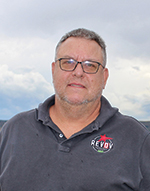
Businesses across sectors are facing increasing pressure to rethink their approach to power, either by facing disruptive power cuts caused by crumbling infrastructure or by the need to save on costs, particularly in high electricity usage industries. As a result, there has been a significant uptick in interest in high-voltage (HV) installations, either as standalone battery energy storage systems (BESS) or as solar installations feeding into battery storage
According to a World Bank report, the South African battery storage market is expected to grow from 270 MWh in 2020 to 9700 MWh in 2030 under a base-case scenario, and up to 15 000 MWh under a best-case scenario. Coming off the back of a slowing residential sector, much of the remainder of this growth will be driven by HV systems. According to Mordor Intelligence, the rising demand for backup power solutions is driven by the need to address frequent power cuts and rising electricity costs, particularly in high-usage industries.

However, it is not all plain sailing. REVOV MD, Lance Dickerson says: “While there are a number of options for businesses to consider, with most of them being imported modular systems, there are challenges when it comes to support or unique circumstances. Most businesses prefer local support as opposed to the logistical challenges of dealing with companies in China. In addition to this, not all businesses are prime candidates for a one-size-fits-all modular approach, and instead need a bespoke solution to be designed.”
He adds that prior to moving into the HV market, where the business is now well-established, it took its time to develop an offering that not only meets technical specifications, but also addresses real-world challenges that customers in South Africa and neighbouring countries face. “We spent time listening to the market and understanding the key challenges businesses were facing. In response, we developed a solution tailor-made for South Africa and its neighbouring countries. Unlike other battery suppliers who source their modular systems from overseas, all of REVOV’s batteries are assembled in South Africa under the close supervision of our engineering team. This not only ensures quality control, but also provides a crucial advantage in terms of after-sales support and responsiveness,” he continues.
This local support is crucial, because if something goes wrong with an HV system, customers do not have to wait weeks or even months for a technician to fly in from China. This preference for local support is echoed by many businesses facing the logistical challenges of dealing with international suppliers.
Dickerson explains that many battery businesses operate on a one-size-fits-all model, where customers must choose from a limited set of pre-determined battery pack sizes. “Modular systems are obviously important as they allow businesses to upsize, or even downsize, based on their circumstances. The problem arises when the pre-determined battery pack sizes are not ideal for certain applications. This led to us taking a different approach, offering both modular and fully customised solutions that are tailored to the specific requirements of each business.”
When asked what advice he has for businesses looking to invest in an HV system, Dickerson says, “Support, support, support! This is a big investment, but when done properly it can pay off itself in a far shorter period of time than one would expect. The best piece of advice is to look for a business that does not just sell batteries and then leave. Seek out a partner that will work closely with you to understand your specific needs, and then design and implement solutions tailored to your business.”
By addressing these needs with bespoke, locally-supported solutions, companies like REVOV are well-positioned to lead the way in meeting South Africa’s growing demand for high-voltage power backup systems.
For more information contact Revov,
© Technews Publishing (Pty) Ltd | All Rights Reserved